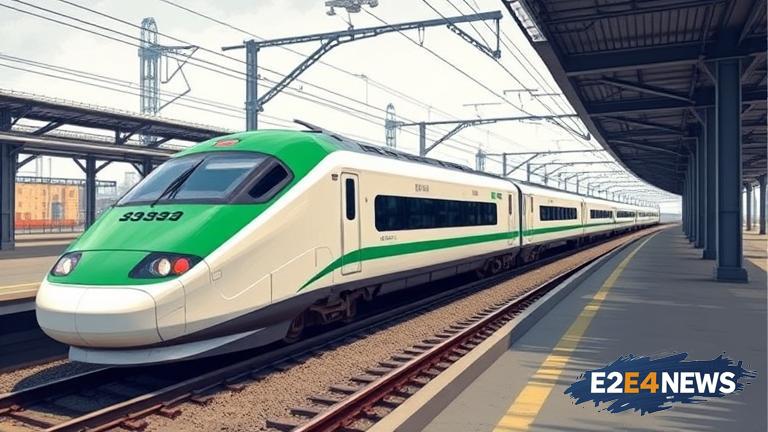The Ministry of Railways in Pakistan has issued a statement denying any plans for a bullet train project connecting Karachi and Lahore. This comes after several media outlets reported on the alleged project, sparking widespread interest and speculation. According to the Ministry, there is no truth to the claims, and no such project is currently on the table. The statement was released in response to a news article published earlier, which cited unnamed sources within the Ministry as confirming the project’s existence. However, the Ministry has now clarified that these reports are entirely baseless and without merit. The proposed bullet train project had been touted as a major infrastructure development, aimed at reducing travel times between the two cities and boosting economic growth. But with the Ministry’s denial, it appears that these plans are not being pursued at present. The news may come as a disappointment to many who had been eagerly anticipating the project’s launch. Nevertheless, the Ministry’s statement serves as a reminder of the importance of verifying information through official channels before accepting it as true. In recent years, Pakistan has been actively seeking to upgrade its rail network, with several projects underway to improve the efficiency and capacity of its trains. While a bullet train project may not be in the works, the country remains committed to modernizing its transportation infrastructure. The denial of the Karachi-Lahore bullet train project has significant implications for the country’s transportation sector, and it will be interesting to see how this development unfolds in the coming months. As Pakistan continues to navigate its economic and infrastructure challenges, the need for reliable and efficient transportation systems remains a pressing concern. The Ministry’s statement has provided clarity on the matter, and it is now up to the relevant authorities to explore alternative solutions for improving the country’s rail network. In the meantime, the public will have to wait and see what other infrastructure projects are in the pipeline. The Ministry’s denial has also sparked a debate about the role of media in reporting on sensitive topics, highlighting the need for greater accuracy and accountability in journalism. Furthermore, the incident has raised questions about the government’s communication strategy, with some critics arguing that the Ministry should have been more proactive in addressing the rumors and speculation surrounding the project. As the situation continues to evolve, it is likely that we will see further developments and announcements from the Ministry and other relevant stakeholders. The Karachi-Lahore bullet train project may be off the table for now, but the conversation around Pakistan’s transportation infrastructure is far from over. In fact, the country’s rail network is in dire need of modernization, and any efforts to improve it would be welcome. The Ministry’s statement has provided a dose of reality, but it has also underscored the importance of continued investment in the country’s transportation sector. With a growing population and increasing economic activity, Pakistan’s infrastructure needs are becoming more pressing by the day. While the bullet train project may not be a priority at present, the government must continue to explore innovative solutions for addressing the country’s transportation challenges. This could involve investing in new technologies, upgrading existing infrastructure, and improving the efficiency of current systems. Only through a sustained and coordinated effort can Pakistan hope to develop a transportation network that is capable of supporting its growing economy and population. The denial of the Karachi-Lahore bullet train project is a setback, but it is not the end of the story. As Pakistan looks to the future, it is clear that the country’s transportation infrastructure will remain a major focus of attention and investment.
